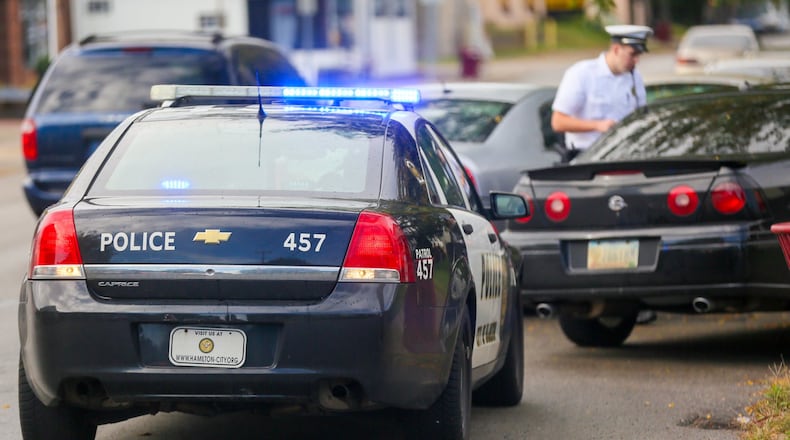Shortly after the calls start, letters and packages start arriving in the mail from lawyers and other businesses seeking to represent the motorists. The mail volume can rival that of a high-school senior being wooed by colleges across the country.
MORE POPULAR NEWS ON JOURNAL-NEWS.COM
Middletown bus number retired after longtime driver dies
This long-awaited Hamilton road project is on time and under budget
Man who lost son to ‘freak accident’ now fighting for his own life
After State Rep. Catherine Ingram was involved in a wreck several months ago, she realized, “It was kind of like, ‘Wait a minute. These guys call you at 7 in the morning, and they’ve got your cell phone number. And that makes no sense. And it’s constant — and it was (calls) from all over the state,” she said.
“Same thing with my aide, who was just in an accident … and he was getting calls, and they were telling him that they were the pain-and-injury folks,” Ingram said.
In the news release announcing a bill to curtail such contacts, she called the callers and their clients “ambulance chasers.”
Ingram (D-Cincinnati) and State Sen. Stephanie Kunze (R-Hilliard) have introduced two bills taking different approaches to eliminating such contacts.
Ingram’s House Bill 331 would ban companies from contacting people using information from the Ohio Department of Public Safety’s database that contains information about recent wrecks, including closely held cell phone numbers. It would also require the state’s attorney general to establish a hotline for people to report unwanted contacts. Companies with pre-existing relationships with a driver would be allowed to make contact.
Kunze’s Senate Bill 148 would let people involved in wrecks check a box indicating whether or not they wish to receive the solicitations.
Ingram said she received a letter from a Cincinnati-area lawyer who argued, “people need other people to guide them if they have no idea of what should be available to them once they’ve been in an accident.”
Her response to that: “Well, mail me whatever you want to. I don’t want to cut out public records, but I do want to cut out your being able to access me in any way you know how, and if the federal government can have a Do Not Call list, I should be able to tell you not to call me, if I want to, about something like that.”
She said some of the callers apply too much pressure.
“The real downside is when some of those shady kind of chiropractors get into that kind of referral kind of web that they’re weaving,” Ingram said. “They don’t bother to tell the people, ‘Now, here’s what this normally would cost, and for everything that you do — if you sit down on a chair, or if we have you stretch your leg — that’s an additional exercise, and it has a different fee.’”
People can make better decisions based on mail, she said, rather than high-pressure calls.
“We don’t have an official position or comment” on the bills, said Nicholas Strata, executive director of the Ohio State Chiropractic Association.
The organization has been discussing the bills internally, and “it would affect a portion of our constituency, or membership,” he said.
“That portion of our membership does believe (the calls) provide a service, by constructing their practices that way,” Strata said.
Not everybody is familiar with chiropractic care, although Strata said the industry is getting better at spreading the word about itself in general at a critical time of opioid addictions. Chiropractors can help people feel better without use of pain medication and surgery, he said.
The Ohio Association of Civil Trial Attorneys told this newspaper it supports “reasonable limitations on the aggressive solicitation of accident victims.”
“The Accident Victim Privacy Protection Act may serve as a positive step toward limiting the types of conduct and communications which detract from the public’s perception of the legal profession as a whole, without impairing the availability of needed legal consultation and services within the bounds of a lawyer’s legal and ethical obligations,” said Debbie Nunner, executive director of OACTA.
Nunner said crash victims “are often inundated with communications following an auto accident offering to provide chiropractic, medical and/or legal care at a time when they may be particularly vulnerable.”
Dennis Hetzel, president and executive director of the Ohio News Media Association, said that organization plans to keep an eye on the legislation, but at this point, “It doesn’t seem to interfere with any journalistic purpose.”
One reporter with this news outlet began receiving such calls the day after being sideswiped on an interstate highway.
“My name is Jessica, I’m with the Wellness Group,” said the caller. “I need to bring you in for your free exam. It’s with our licensed chiropractor. It’s to help you with any soreness you noticed after the accident, and get you started on your cash settlement.”
“You are pursuing a cash settlement, right?” the caller asked. She later said, “We need to get you in today, because the sooner you document your injuries, the more money you’ll get, OK? Tell me a little bit about your accident. How fast was the other driver going when they hit you?”
The caller pushed to book an appointment the same day, and added: “Our doctors specialize in treating car-accident injuries, and work with the best attorneys in town, which means the most money for your cash settlement.”
She declined to name the chiropractors she was trying to book an appointment for. She later hung up after being questioned about her identity and company.
About the Author
